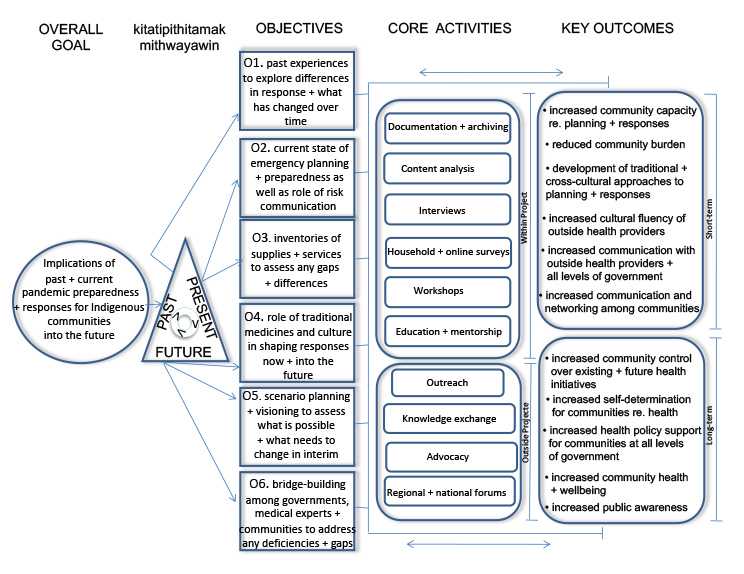COVID-19 was first identified on December 31 2019 in Wuhan, China. It has quickly become a global emergency with the World Health Organization, declaring COVID-19 as a global pandemic, and recognizing that it represents a substantial threat to global markets, geopolitics and human health alike.
Studies on other pandemics including SARS, MERS, and H1N1 show that disadvantaged groups generally suffer the greatest incidence and mortality rates. With respect to H1N1, Indigenous communities in Canada had three times the incidence rates and 15 times the hospitalization rates than that of the general public, in part reflecting long-standing health inequities across the country.
Countermeasures were generally inadequate and at worst created more harm than good. Communities had poor access to medical experts and supplies and misinformation generated uncertainty and fear that persists today. Yet, many communities and Indigenous organizations also responded, effectively mitigating the effects of H1N1.
The outbreak of COVID-19 thus represents a critical moment. On one hand the same mistakes could be repeated, while on the other, there is an opportunity to anticipate these in ways that Indigenous priorities play the core role in shaping countermeasures here and into the future
Project Goal
The goal of this project is to develop innovative and culturally appropriate countermeasures to COVID-19 and other pandemics that will better serve Indigenous communities and organizations now and into the future.
Project Objectives
i) to identify past experiences with other pandemics and to explore any differences in countermeasures and how these have evolved over time;
ii) to critically evaluate the current state of community emergency planning and related risk communication;
iii) to conduct inventories of supplies and health services and assess any gaps;
iv) to address any such gaps through multi-stakeholder workshops;
v) to conduct planning workshops with each community to assess responses to a diversity of possible scenarios; and
vi) to conduct visioning-exercises to assess aspirations and associated responses.
Project Activities will evaluate the implications of past and existing countermeasures to pandemics with respect to Indigenous communities across Canada and address any gaps in understanding and support related to COVID-19 and other pandemics in the future.
-
Communication and information sharing with Indigenous communities will be a primary focus during the peak of the pandemic, when travel restrictions and social distancing measures are in place. This will include video and social media to amplify community voices.
-
Existing community countermeasures and emergency plans will be documented through interviews with local health providers in Manitoba.
-
Inventories of services and existing supplies will be conducted.
-
Past experiences with pandemics will be assessed in interviews with health center directors and knowledge holders from communities in Alberta, Saskatchewan, Manitoba, Ontario, and Quebec. Interviews will also be conducted with health specialists from Tribal Councils and from provincial and federal health agencies.
-
Workshops will be held that explore the use of traditional medicines and ceremony during pandemics.
-
Household surveys will be conducted to assess local concerns.
-
Workshops on scenario-building and visioning will be held in communities for future planning.
This project will play a critical role in addressing many social and policy countermeasures now prioritized by the Canadian government by:
-
Focusing on Indigenous communities across Canada will document the cultural dimensions of COVID-19 and how these can be better reflected in countermeasures;
-
Using innovative tools including scenario building and visioning to identify and share community perspectives and aspirations;
-
Evaluating the logistics of past and current responses and adapt these to better address community needs; and
-
Developing and sharing appropriate ways of communicating risk and mitigating fear regarding COVID-19 with partners and all levels of government.
Logic Model

